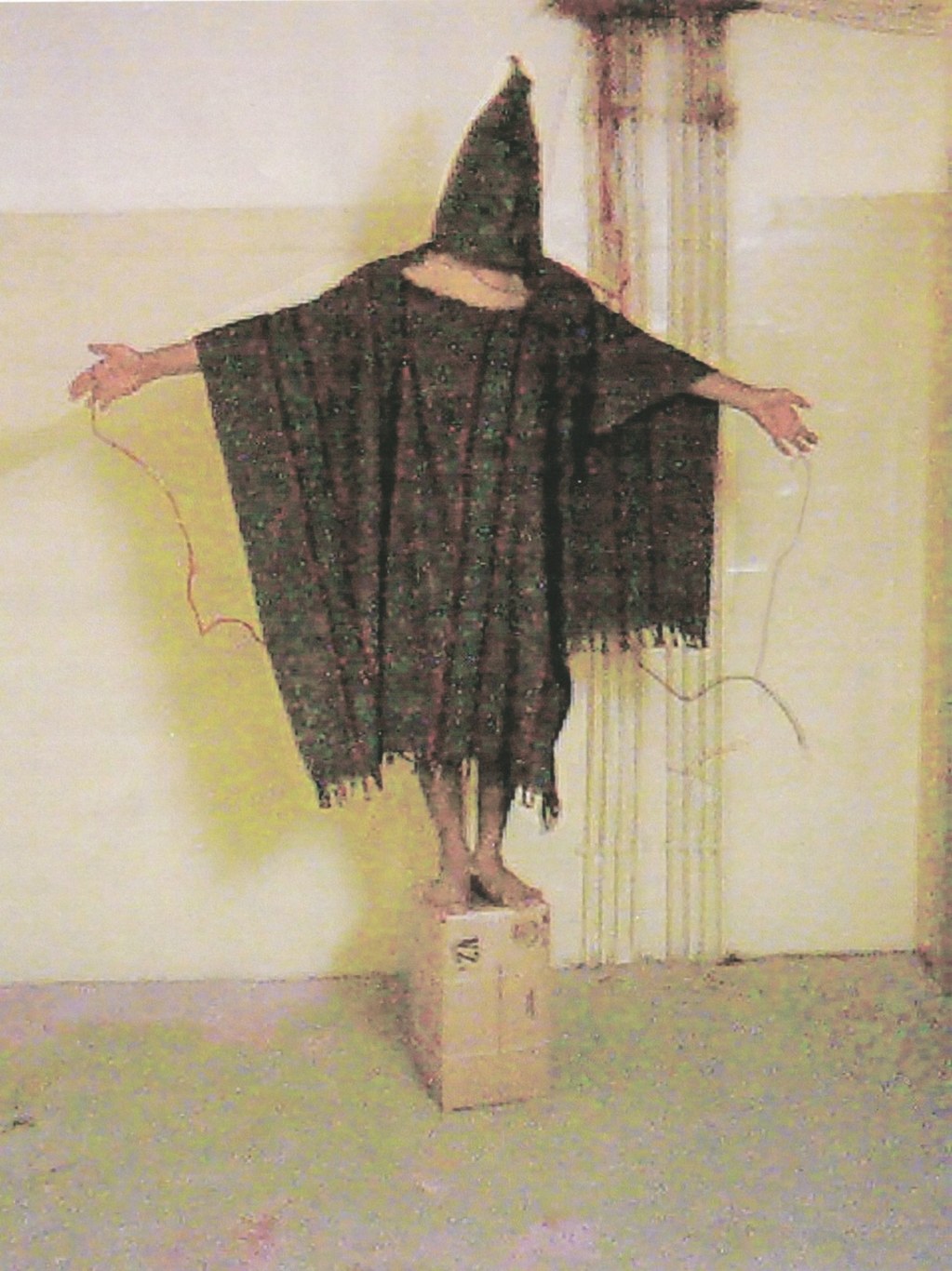Environmental Crisis, Oil Geopolitics and the Trump Diversion
by Rob Urie - CounterPunch
May 3, 2019
America in 2019 is a very strange place. The problems of the age: looming environmental calamity, the threat of nuclear annihilation and accumulating class tensions, keep being shoved to the side through diversionary tactics.
No sooner had a range of left programs been consolidated under the banner of a Green New Deal than establishment Democrats and their partners in misdirection made it known that ‘stopping Trump’ was their only priority. As priorities go, this one speaks to the limitations of its proponents.
Drawing by Nathaniel St. Clair
Back in the land that time hasn’t forgotten, environmental calamity has been a growing threat for three centuries now. Its growth rate accelerated after WWII along with the threat of nuclear annihilation.
Class tensions have been escalating since the 1970s as neoliberalism has diminished the public sphere and accrued wealth and income to those who benefit from social destruction. Given the singular source and its persistence through periods in which either Republicans or Democrats exercised control, systemic drivers are the only explanation left standing.
Graph: Capitalist countries produce CO2 emissions; the Global South bears the impact in terms of global warming. In environmental terms, capitalist production is class warfare where the rich get richer by making the poor poorer. On the right side of the graph is the relationship of GDP to CO2 emissions. On the left is the economic impact of CO2 emissions on those who didn’t produce it. By forcing costs, in terms of global warming, onto the Global South, people who see no benefit from capitalist production bear its costs. Source: Diffenbaugh, Burke Standford.edu.
The rational reason for suggesting that these problems preceded Donald Trump’s tenure as President is to posit that because he didn’t cause them, they won’t disappear when he leaves office. For those who might not have lived through the current load of Democratic bullshit before, Democrats sound reasonable until they are in office. Then they act like Republicans. Here is Barack Obama
explaining that he is a Republican. As the young and politically infirm are about to discover, the American political establishment exists to stifle the will of the people.
From the time I was a wee lad, most Americans have wanted to do the right thing when they are provided accurate information about what it might be. Once the bullshit about ‘a government takeover of health care’ dissipated, most Americans want Medicare for All. Once the lie that environmental problems aren’t real and consequential dissipated, most Americans will make sacrifices for a livable environment. But what people want is antithetical to what oligarchs want. For-profit sick care and environmental destruction are the sources of the oligarch’s political power.
As not constructive as most of Donald Trump’s political program is, the Democrats need him in order to portray their own service to these oligarchs as in the public interest. As circumstances have it, House Democrats are doing what they do: in lieu of selling programs like Medicare for All and a Green New Deal to a public that is already predisposed to support them, they are hiding behind Republican ‘obstruction’ to craft Republican proposals that Republicans will then worsen. The political contest is for oligarchic favor— which makes it a race to the bottom in terms of public policy.
For instance, Obamacare was a slight reworking of the Republican Heritage Foundation’s program first implemented in Massachusetts by Republican Governor Mitt Romney. In Democratic Party logic, Republicans had to support a Republican plan implemented by a Republican Governor. Not to be outdone, the Republicans doubled down, rightly arguing that their own plan was every bit the piece of shit they knew it was when they pushed it. Democrats are now in the position of defending a Republican plan that even Republicans know doesn’t work as advertised.
The strategic idiocy of Democrats rallying to save a Republican plan from Republicans trying to kill it illustrates the conundrum. Through service to oligarchs and the corporations they control, the Democrat’s schtick of having a conscience only keeps them in power as long as it is plausible. With the popular will now on the side of Medicare for All and real environmental resolution. rigging congressional committees to override the popular will leaves fear-mongering of the Republican ‘other’ as their only fallback. They are now so far to the right of the public that claiming the political center is no longer plausible.
More to the point, this horse-race logic is taking place during potentially world-ending environmental crises. In addition to climate change and mass extinction, five decades of neoliberalism have left local municipalities and states with environmental crises they lack the resources to address. Much of the U.S. has drinking water poisoned with lead, PFAS and agricultural run-off. Beginning decades ago farm land was being abandoned because it had been rendered unusable by an accumulation of agrochemicals. Fracking has destroyed the water tables on which agriculture is dependent. Urban gardens are poisoned with lead, asbestos and PFAS. Clean soil must be imported to make food grown in them fit for human consumption.
Degradation of local environments is so pervasive that it is a crisis of the scale of climate change and mass extinction. People can’t live without drinkable water, breathable air and arable land. And yet the American political system still, in 2019, exists to prevent polluters from having to clean up their messes. Nor could they, even if they were made to try. The scale of the cleanup can only be met through collective action. The IPCC estimated that ‘we’ had twelve years from a year ago to radically reduce greenhouse gas emissions. Mass extinction is already underway.
As the graph above illustrates, climate change is the product of the rich forcing their toxic waste onto humanity. More interesting still, is that GDP adjusted for environmental destruction (the amount below the ‘0’ line) is a net loser. Decades ago American oligarchs launched a natural experiment of the toxic effects of their products and production methods on a population from whom no consent was sought or given. Today, these same oligarchs and corporate titans have enriched themselves by making the water undrinkable, the air unbreathable and the earth toxic.
Although seemingly distinct, current U.S. machinations against Venezuela and Iran illustrate a related conundrum. What are the chances that the American plan is to leave Venezuela’s oil in the ground? And what are the chances that American designs on Venezuela are a Republican creation as opposed to being
bi-partisan? Nicolas Maduro was made politically vulnerable in part by economic sanctions imposed by Barack Obama. And given the death and destruction that the U.S. has left in its wake since its so-called founding, what plausible argument is there that Mr. Obama’s plan for Venezuela wasn’t one with Mr. Trump’s?
The American plan since the 1950s has been to control oil for purposes of geopolitical leverage. But this isn’t my plan, nor the plan of anyone I know. The Americans for whom it is a plan are the oligarchs who have made their fortunes from forcing others to bear the costs of their production. When the costs of building and maintaining the U.S. military to fight resource wars, the subsidies for finding and extracting resources and the externalized costs of dirty production are added together, capitalism is among the worst ideas in human history. The human costs aggregate to genocide. But it continues to make a small group of oligarchs rich.
In this light, much of the left response to Donald Trump continues to be both diversionary and reactionary. Analyses of international political developments, from trade negotiations to American actions against Iran and Venezuela to the political use of historical explanations of the rise of European fascism, continue to be posed uncritically against twentieth century liberalism. This would be fine and well if an historical accounting— from climate change and mass extinction to unhinged militarism, slavery and genocide, the threat of nuclear annihilation and growing class tensions, prefaced these analyses.
But this hasn’t been the case. Democrats and liberals, with help from an erstwhile left, have acted to restore liberalism under the anti-historical ruse that liberal ‘values’ bear relation to American actions. In one of the more telling metaphors for the American ‘experiment,’ Robert McNamara states far into Errol Morris’s film
The Fog of War that the U.S. spent three decades slaughtering Vietnamese without once having had an actual conversation with the Vietnamese political leadership about what was motivating Vietnamese politics. Had they, they would have understood that the American
rationale for the slaughter of four million human beings was pure fantasy.
Further back, the liberal program ties to the end of WWII when neoliberalism was conceived to provide ideological distance from the
Nazi use of the American model of economic development to turn Germany into an industrial powerhouse. Slavery, genocide, imperialism and savaging the environment were good enough for the Americans, went the thesis. Through differentiating the authoritarian from the democratic political model, the Americans continued to act as they had, but with moral authority theorized to come from the consent of the ruled.
The next seventy years in the U.S. were dedicated to manufacturing the consent of the ruled. The U.S.
ranks far down lists of countries with free and fair elections. Democrats could take their program to the people to bring in the half of the eligible electorate that doesn’t vote. But they would rather pass off rigged committees of corporate hacks and lobbyists as simulacra of democratic consent than take a risk that actual voters might support programs in their own interest. The liberal assumption of moral authority is based in a fraud.
Graph: American foreign policy has serially targeted countries to control the global production and distribution of oil. Assertions of humanitarian concern are laughable given the history. With Venezuela and Iran now in U.S. foreign policy sights, concern is for the people of these nations and the future of humanity as this oil is consumed. Russia! raised the specter of competition for oil and gas customers. Capitalists are known for hating competition. Source: worldatlas.com.
Here is where liberalism asserts itself: Venezuela can rightly be treated as a colony because the authoritarian Nicolas Maduro, elected through free and fair elections, doesn’t serve with the consent of the governed. Likewise, Muammar Gadhafi, Saddam Hussein, the state-theocratic leadership of Iran and Russia!, lack the consent of the governed. Who decides who has this consent? Well Barack Obama did when he implemented ‘humanitarian’ sanctions against Venezuela. Donald Trump does when he tries to impose American governance on the people of Venezuela.
Following the release of
comprehensive evidence that climate change and mass extinction are killing the planet, left political energy coalesced around a Green New Deal to affect and facilitate the transition to a just and sustainable economy. The integration of polluting industries into the global economy means that any meaningful move toward sustainability will result in large-scale economic dislocations if transition programs aren’t created to address them. This is the best hope for avoiding the unplanned devolution of necessary and sustaining economic production.
What is yet to be resolved in this new environmental era is the moral and political accounting of the age. Are those who light the house on fire responsible for killing those dwelling within? Or is it still plausible that act and outcome are unrelated? The U.S. is the center of environmental resolution because it is the cause of most of the damage. Ignorance on the part of the powers that be hasn’t been plausible for at least a few decades now. ‘Liberating’ oil to be consumed is an act of environmental arson. And as inconvenient as attribution may seem at present, responsibility for doing so is bi-partisan.
The American role in creating these injuries gives it a special responsibility going forward. This gets to the issue of distractions. How plausible is it that the Democratic establishment— alleged to be knowledgeable in the science of climate change, intends to act boldly toward solving environmental ills while it supports the very worst of twentieth century resource imperialism? There aren’t many knowable outcomes in life, but this one is certain. The Democratic establishment will do everything in its power to undermine and / or corrupt Medicare for All and the Green New Deal.
Rob Urie is an artist and political economist. His book Zen Economics is published by CounterPunch Books.
More articles by:Rob Urie








